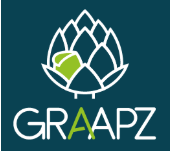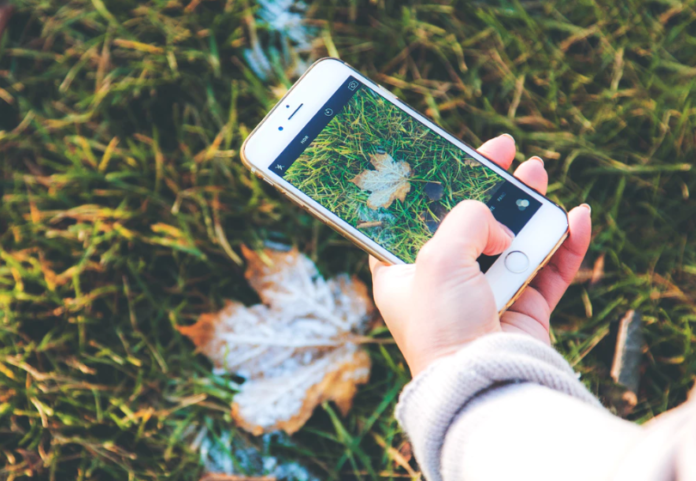Whether in technology or in the food industry, the waste we produce is not properly recycled. We are all aware of the plastic pollution in the oceans and the growing impact on marine life. In 2018, around 380 million tonnes of plastic were produced globally. Only a small percentage of this is recycled, with most of it flooding our oceans, poisoning marine life and seabirds, or going into landfills. Scientists have been able to find very high levels of microplastics in some rivers, and the danger this poses to humans is only higher than ever before.
Creating a circular economy has been recognized as one of the biggest changes that people want nowadays in our society. The benefits represented by a more circular and inclusive economy are numerous; from reducing plastic waste to saving our natural resources and money, a circular economy seems to be the way forward in the next decades.
Startups can help us get there by putting innovation and technology to work, and in the past few years we’ve seen more and more companies committing to this cause. Some of these startups have been recognized since 2014 by the Green Alley Award, Europe’s first startup prize for the circular economy.
Here are 10 disruptive startups that aren’t accepting “business as usual”:
 Aeropowder is an award-winning startup from London creating novel materials from surplus feathers. Their mission is to create useful materials from waste that exists in society. We consume over 134 millions of chicken per day, and the poultry industry generates over 10,000 tons of feathers per day, considered as waste. So there is a big market for feathers to be incorporated into a circular economy. Feathers are composed of keratin, a chemically resistant and physically strong protein. Thanks to their microscopic structure, they are one of the lightest natural fibres in nature and are also excellent thermal insulators. The company was launched in 2016 and has raised €50k thanks to a grant from Horizon 2020.
Aeropowder is an award-winning startup from London creating novel materials from surplus feathers. Their mission is to create useful materials from waste that exists in society. We consume over 134 millions of chicken per day, and the poultry industry generates over 10,000 tons of feathers per day, considered as waste. So there is a big market for feathers to be incorporated into a circular economy. Feathers are composed of keratin, a chemically resistant and physically strong protein. Thanks to their microscopic structure, they are one of the lightest natural fibres in nature and are also excellent thermal insulators. The company was launched in 2016 and has raised €50k thanks to a grant from Horizon 2020.
 Sulapac – This Helsinki-based startup is also innovating to redefine the packaging industry by creating materials like straws, made out of sustainably-sourced raw materials and wood side-streams, microplastic-free and fully biodegradable. Suvi Haimi and Laura Kyllönen’s product can be used as packaging for everything from cosmetics to foodstuff to gift boxes and more. It has all the benefits of plastic, yet it biodegrades completely and leaves no trace once it’s gone. In 2018, the company secured new investors and is scaling up with total funding reaching €2.9 million so far.
Sulapac – This Helsinki-based startup is also innovating to redefine the packaging industry by creating materials like straws, made out of sustainably-sourced raw materials and wood side-streams, microplastic-free and fully biodegradable. Suvi Haimi and Laura Kyllönen’s product can be used as packaging for everything from cosmetics to foodstuff to gift boxes and more. It has all the benefits of plastic, yet it biodegrades completely and leaves no trace once it’s gone. In 2018, the company secured new investors and is scaling up with total funding reaching €2.9 million so far.
![]() Fjong is a Norwegian company redefining the way we consume fashion by providing unlimited access to it in an affordable and sustainable way. On Fjong’s platform you can either rent or lend clothing. The FJONG closet includes over 4,000 new and vintage designer women’s clothing from over 200 brands worldwide. You just need to find the right outfit, choose your renting period, and bring it back once you’re done. The Oslo-based company sets to save money by accessing a wide variety of high quality outfits for a fraction of the cost of buying, save closet space at home by embracing a minimalist lifestyle, and save the planet by saying goodbye to fast fashion and the amount of waste it creates. Launched in 2016 and only available in Norway, we have already featured them in our article of the 10 Norwegian startups to look out for in 2019.
Fjong is a Norwegian company redefining the way we consume fashion by providing unlimited access to it in an affordable and sustainable way. On Fjong’s platform you can either rent or lend clothing. The FJONG closet includes over 4,000 new and vintage designer women’s clothing from over 200 brands worldwide. You just need to find the right outfit, choose your renting period, and bring it back once you’re done. The Oslo-based company sets to save money by accessing a wide variety of high quality outfits for a fraction of the cost of buying, save closet space at home by embracing a minimalist lifestyle, and save the planet by saying goodbye to fast fashion and the amount of waste it creates. Launched in 2016 and only available in Norway, we have already featured them in our article of the 10 Norwegian startups to look out for in 2019.
![]() Grover is a subscription technology rental platform that allows you to rent tech devices for as long as you want (one-month minimum) instead of buying a brand new one. Their goal is to reduce the amount of e-waste and bring sustainability into your life at an affordable price. You can rent 2,000+ tech products in 10 categories, and if your device breaks Grover provides 90% of damage cost coverage and ask for no deposit and there is no hidden costs. Launched in 2015, the company now has 84 employees and over 200,000 registered users throughout Germany. The startup has raised €62 million to date.
Grover is a subscription technology rental platform that allows you to rent tech devices for as long as you want (one-month minimum) instead of buying a brand new one. Their goal is to reduce the amount of e-waste and bring sustainability into your life at an affordable price. You can rent 2,000+ tech products in 10 categories, and if your device breaks Grover provides 90% of damage cost coverage and ask for no deposit and there is no hidden costs. Launched in 2015, the company now has 84 employees and over 200,000 registered users throughout Germany. The startup has raised €62 million to date.
![]() Biopack Packaging – This Groningen-based startup decided to tackle plastic waste by offering a sustainable alternative to plastic packaging. They claim that their product and production process support, and is part of, a transition from a linear to a circular economy. The founders of BioPack Packaging B.V. Björn Nilsson and Maarten Kimman are well aware of the environmental impact associated with the one trillion packaging units per year that are produced, mainly composed of single-use plastics. Founded in the Netherlands in 2017, their production process has a closed water loop, and is powered by green energy. Their packaging is bio-based and from renewable sources. Their product is compostable and 100% recyclable. The process of BioPack Packaging is a disruptive thermoforming technology that produces three-dimensional moulded shapes with either virgin or recycled fibres.
Biopack Packaging – This Groningen-based startup decided to tackle plastic waste by offering a sustainable alternative to plastic packaging. They claim that their product and production process support, and is part of, a transition from a linear to a circular economy. The founders of BioPack Packaging B.V. Björn Nilsson and Maarten Kimman are well aware of the environmental impact associated with the one trillion packaging units per year that are produced, mainly composed of single-use plastics. Founded in the Netherlands in 2017, their production process has a closed water loop, and is powered by green energy. Their packaging is bio-based and from renewable sources. Their product is compostable and 100% recyclable. The process of BioPack Packaging is a disruptive thermoforming technology that produces three-dimensional moulded shapes with either virgin or recycled fibres.
 The Danish startup Too Good To Go is dedicated to the fight against food waste. One-third of all food produced is wasted – landfills overflow while others starve, and our environment is suffering the consequences. And it’s not just about the food itself, it’s all the resources that went into producing the food – the land, the water, and the labour. Founded in Copenhagen in 2015, To Good To Go allows people to buy surplus, unsold food from restaurants, cafes, supermarkets, and bakeries that otherwise would have to be thrown out. Today the company is led by Mette Lykke, who formerly co-founded Endomondo. Together with a fast-growing team, she expanded with To Good To Go to 12 countries, raised a total of €16 million, and is on her way to save 20 million meals per year. You can now use their app and find your favorite meal nearby and get it at a discounted price, and help them in the fight against food waste.
The Danish startup Too Good To Go is dedicated to the fight against food waste. One-third of all food produced is wasted – landfills overflow while others starve, and our environment is suffering the consequences. And it’s not just about the food itself, it’s all the resources that went into producing the food – the land, the water, and the labour. Founded in Copenhagen in 2015, To Good To Go allows people to buy surplus, unsold food from restaurants, cafes, supermarkets, and bakeries that otherwise would have to be thrown out. Today the company is led by Mette Lykke, who formerly co-founded Endomondo. Together with a fast-growing team, she expanded with To Good To Go to 12 countries, raised a total of €16 million, and is on her way to save 20 million meals per year. You can now use their app and find your favorite meal nearby and get it at a discounted price, and help them in the fight against food waste.
![]() Worn Again is a UK-based startup set to transform the textile and fashion industries with its polymer recycling technology. After more than six years of intensive R&D, they managed to develop a chemical process to separate, decontaminate, and extract polyester polymers and cellulose from non-reusable textiles, as well as plastic bottles and packaging, and convert them into raw materials. The startup is backed by Miroslava Duma, a Russian digital entrepreneur and investor in fashion tech through her venture Future Tech Lab. With £5 million in funding from the H&M Clothing Company, they are accelerating a waste-free, circular resource world.
Worn Again is a UK-based startup set to transform the textile and fashion industries with its polymer recycling technology. After more than six years of intensive R&D, they managed to develop a chemical process to separate, decontaminate, and extract polyester polymers and cellulose from non-reusable textiles, as well as plastic bottles and packaging, and convert them into raw materials. The startup is backed by Miroslava Duma, a Russian digital entrepreneur and investor in fashion tech through her venture Future Tech Lab. With £5 million in funding from the H&M Clothing Company, they are accelerating a waste-free, circular resource world.
 Graapz – Founded in July 2017, the French startup Graapz supports local businesses in the resale of their fruit and vegetables taken off the shelves, for lack of freshness or for aesthetic reasons. Having noticed that few solutions existed to enhance the value of these fragile products and in quantities too small to be recovered by charities, Graapz developed an adapted offer to allow merchants to sell these surplus products at reduced prices on a web platform. Last November, the company Phenix, which specializes in the recycling of unsold goods and the reduction of corporate waste, announced a €15 million fundraising campaign with the aim of accelerating its international development, and to reach a wider audience, with the launch of an offer aimed directly at consumers. It has recently acquired Graapz, a specialist in the revaluation of unsold fruit and vegetables, with the aim of developing its new offer for private individuals.
Graapz – Founded in July 2017, the French startup Graapz supports local businesses in the resale of their fruit and vegetables taken off the shelves, for lack of freshness or for aesthetic reasons. Having noticed that few solutions existed to enhance the value of these fragile products and in quantities too small to be recovered by charities, Graapz developed an adapted offer to allow merchants to sell these surplus products at reduced prices on a web platform. Last November, the company Phenix, which specializes in the recycling of unsold goods and the reduction of corporate waste, announced a €15 million fundraising campaign with the aim of accelerating its international development, and to reach a wider audience, with the launch of an offer aimed directly at consumers. It has recently acquired Graapz, a specialist in the revaluation of unsold fruit and vegetables, with the aim of developing its new offer for private individuals.
![]() Founded in 2017, Refurbed is an online marketplace for refurbished products in German-speaking countries. The startup sells refurbished phones, laptops, tablets, headphones, smartwatches, cameras, e-bikes, and more at prices that are up to 40% cheaper – and 100% more environmentally friendly – than brand new products. Refurbed has a 40-step process to refurbish used electronics, so they both look and function like new. All products also come with at least a 12 month warranty. Refurbed raised a $2.2 million seed round in March 2019.
Founded in 2017, Refurbed is an online marketplace for refurbished products in German-speaking countries. The startup sells refurbished phones, laptops, tablets, headphones, smartwatches, cameras, e-bikes, and more at prices that are up to 40% cheaper – and 100% more environmentally friendly – than brand new products. Refurbed has a 40-step process to refurbish used electronics, so they both look and function like new. All products also come with at least a 12 month warranty. Refurbed raised a $2.2 million seed round in March 2019.
![]() Re-circula Solutions is a Barcelona-based startup that provides integrated technological solutions for waste management and collection systems in urban areas and for pharmaceutical waste. Their goal is to reduce the amount of waste produced in Europe, which 34,6% of it ends up incinerated or in landfills. The economic loss accounts for €5.2 billion and the environmental impact is equivalent to 10.64 million tons of Co2 released into the atmosphere. Founded in 2016, the Spanish startup advocates to give citizen a more active role, the implementation of a “Pay-pay-as-you-throw” system, to gamify the recycling process and create a waste packaging Big Data market for relevant data-tracking. In March 2018, the company was granted €50k from the Horizon 2020 SME instrument to develop its solutions.
Re-circula Solutions is a Barcelona-based startup that provides integrated technological solutions for waste management and collection systems in urban areas and for pharmaceutical waste. Their goal is to reduce the amount of waste produced in Europe, which 34,6% of it ends up incinerated or in landfills. The economic loss accounts for €5.2 billion and the environmental impact is equivalent to 10.64 million tons of Co2 released into the atmosphere. Founded in 2016, the Spanish startup advocates to give citizen a more active role, the implementation of a “Pay-pay-as-you-throw” system, to gamify the recycling process and create a waste packaging Big Data market for relevant data-tracking. In March 2018, the company was granted €50k from the Horizon 2020 SME instrument to develop its solutions.
By the way: If you’re a corporate or investor looking for exciting startups in a specific market for a potential investment or acquisition, check out our Startup Sourcing Service!





Great article!
We need more startups in the social and environmental innovation space.
TAPP Water should have totally made it to the list 🙂 (biased opinion).